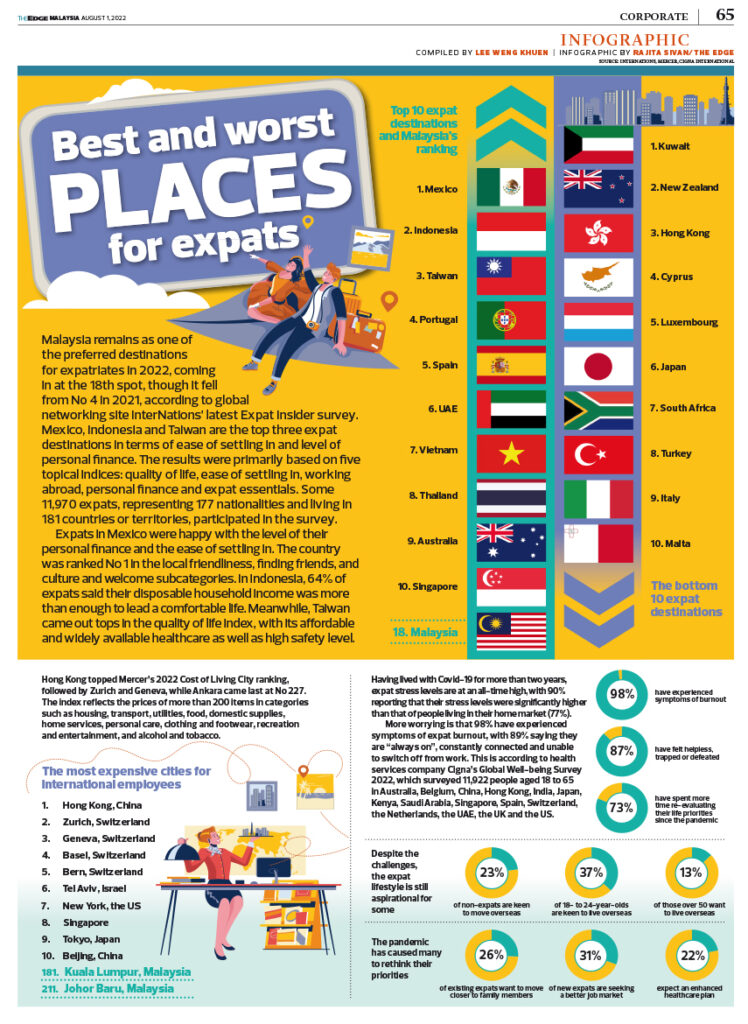Malaysia has been ranked as the world’s third most competitive Global Business Services (GBS) location, behind India and China, according to an index by global consulting firm Kearney.
The firm’s 2021 Global Services Location Index (GSLI) showed that Asian economies continued to take seven spots in the top 10, with India in first place with a score of 7.09, followed by China (6.80) and Malaysia (6.22).
This index, issued every two years, tracks the contours of the global landscape across 60 countries with four major categories — financial attractiveness, people skills and availability, business environment, and digital resonance.
A GBS location allows large multinational corporations (MNCs) or organisations to centralise their business operations and activities, such as finance, human resource, information technology (IT) and procurement in certain countries to provide shared services, said business transformation consultant Joon Teoh.
She noted that among the MNCs that have established GBS centres in Malaysia are Shell, AstraZeneca, British American Tobacco and Bash.
“For IGOs (intergovernmental international organisations), we have the World Health Organisation (WHO), Malaysia’s biggest attraction is the diversity of talent, including the languages we speak, that is able to serve different countries,” Teoh told Bernama recently in an interview conducted virtually.
She said GBS centres serve their own people in corporations or organisations around the world.
“For example, if any of their staff, no matter where they are, have to travel overseas, their air tickets, payments and so on will all be managed by the GBS centres set in Malaysia or other countries.
“How do they (GBS centres) do that? This is where technology comes in. Because you have to make it (happen) in a digital platform for people to put in their claims or to buy their air tickets, (and) for suppliers to send the invoices, etc,” Teoh explained.
Teoh, who is also the CEO of Agos Asia, said that the Malaysian government has always emphasised the development of GBS in the country, including underlining the importance of the sector in the 12th Malaysia Plan (12MP).
She said this is because when a GBS centre is set up, it can typically range between 150 to over thousands of employees, which will not only create vast job opportunities but also help boost our country’s digitalisation process.
“The government is trying to put us (the GBS sector) in a value curve trajectory because it would be impossible for us to compete with China and India in terms of volume and talent.
“We could only do (this) by providing high skills to meet requirements, in line with the digital transformation,” said Teoh.
That will be the country’s value proposition, where GPS centres in Malaysia are evolving into centres of excellence, led by the local teams to conduct various research and development projects, among others, including robotic process automation and analytics, she said.
According to the 12MP, in the next five years, the focus will be placed on accelerating the development of strategic and high impact industries, including electrical and electronics, global services (GS) and aerospace.
GS, which comprises principal hubs, GBS and headquarters operations, is the main contributor of foreign direct investments (FDI) in the services sector.
Approved investments in GS by multinational companies were recorded at RM46.1 billion, constituting 51.7% of total FDI in the services sector from 2016 to 2020.
Source: Bernama
Malaysia ranks world’s third most competitive GBS location, behind India and China
Content Type:
Duration:



